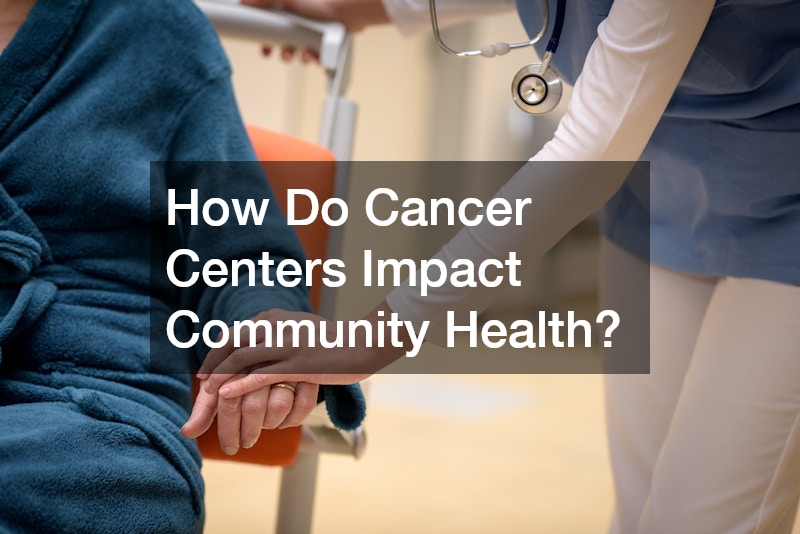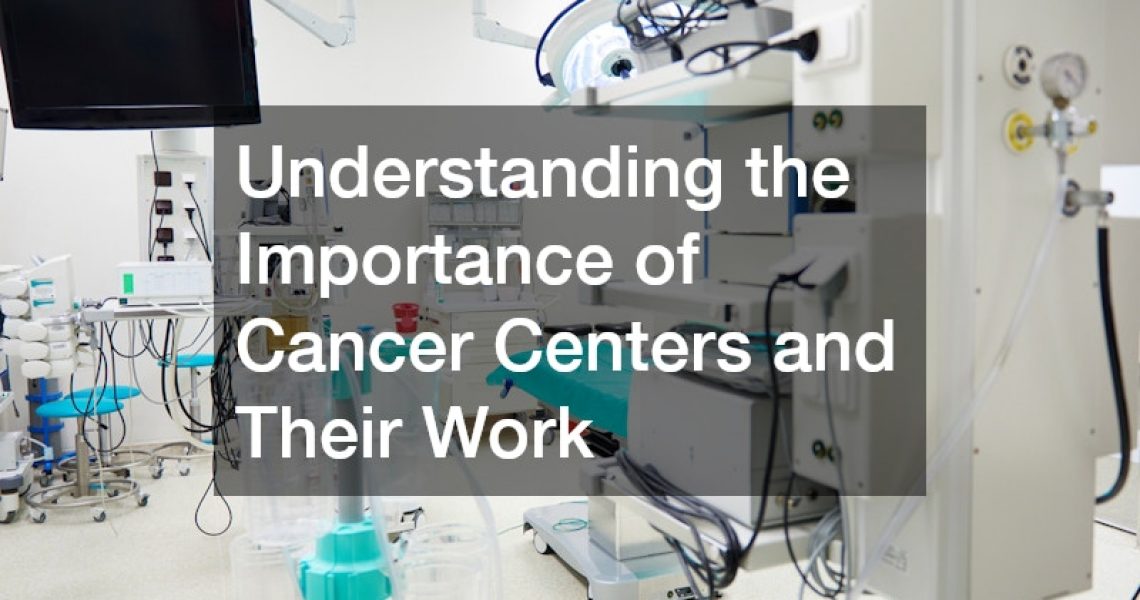Cancer centers are at the forefront of the battle against cancer, offering a structured and comprehensive approach to patient care. Their specialized focus not only assists individual patients but also drives the broader healthcare system towards innovation and improved outcomes. These centers provide a multi-faceted approach to treatment, research, and community health, making them indispensable. By understanding their diverse roles, one can appreciate the profound impact cancer centers have on both local and global scales.
What is the Role of Cancer Centers in Treating Patients?
Comprehensive Treatment Services
Cancer centers provide a broad range of services, including diagnostics, a suite of therapeutic options, and detailed follow-up care. This approach ensures patients receive a continuum of care tailored specifically to their oncological needs. By offering state-of-the-art diagnostic tools and therapies, cancer centers can significantly improve patient prognosis. Striking a balance between technological advancement and patient-centric care is key to achieving positive outcomes.
Patient-Centered Care Approach
The patient-centered care model embraced by cancer centers ensures treatments are tailored to meet individual needs and circumstances. This approach recognizes the uniqueness of each patient’s journey and adjusts care plans accordingly. Given the complexity of cancer, a personalized approach not only enhances treatment efficacy but also improves patient satisfaction. By prioritizing patient needs, cancer centers foster an environment of care and support throughout the treatment process.
How Do Cancer Centers Contribute to Research and Innovation?
Clinical Trials and Breakthroughs
Cancer centers are hubs for clinical trials, paving the way for breakthroughs in oncology treatment. These trials are crucial in developing new therapies that enhance survival rates and quality of life for patients. With a focus on innovation, cancer centers push the boundaries of traditional treatments by exploring novel therapeutic approaches. This commitment to research fuels the continual evolution of cancer care.
Collaboration with Research Institutions
Strong partnerships with universities and research institutions are vital for cancer centers to advance new treatments and technologies. Collaborative efforts allow the sharing of knowledge and resources, which accelerates progress in the field of oncology. These joint initiatives foster an environment where hypothesis-driven research can thrive, translating scientific discoveries into practical solutions. Such collaborations underscore the collective commitment to advancing cancer care.
What Makes a Cancer Center Different From a General Hospital?
Specialized Equipment and Technology
Cancer centers boast a range of specialized equipment and technologies designed for precise diagnosis and effective treatment. The availability of cutting-edge tools is a distinguishing factor that sets them apart from general hospitals. Advanced modalities such as precision imaging and targeted radiation ensure more accurate and individualized treatment plans. This technological rigor enhances the overall efficiency and success of oncological treatments.
Expertise in Oncological Care
The expertise of medical professionals in cancer centers is paramount, with staff possessing specialized knowledge in oncological care. Their experience and focus on cancer treatment provide an added layer of assurance for patients. This depth of expertise enables comprehensive and nuanced care that addresses the multifaceted nature of cancer. As a result, patients benefit from a high standard of care delivered by a dedicated team of experts.
What Support Services are Offered by Cancer Centers?
Psychological and Emotional Support
The psychological impact of cancer is profound, and cancer centers offer crucial emotional support to patients and families. Services such as counseling and support groups are integral in managing the mental health challenges that accompany cancer diagnosis and treatment. Cancer centers provide a safe space to address the emotional needs, ensuring patients do not face their battle alone. Supporting mental well-being is a central facet of holistic cancer care.
Rehabilitation and Survivorship Programs
Post-treatment, cancer centers focus on rehabilitation to improve patients’ quality of life. Survivorship programs are tailored to aid patients in reclaiming their lives and managing long-term health after completing treatment. These programs address physical rehabilitation and lifestyle modifications, empowering patients in their recovery journey. Through continuous support, cancer centers play a vital role in promoting long-term well-being.
How Do Cancer Centers Impact Community Health?
Public Health Education Initiatives
Cancer centers are instrumental in driving public health education initiatives aimed at raising awareness about cancer prevention and early detection. They provide valuable resources to educate the community on recognizing early signs and adopting healthier lifestyles. These educational efforts are essential in promoting proactive healthcare practices that can significantly reduce cancer incidence. Empowering the community with knowledge is a key component of their public health mission.
Community Outreach and Screening Programs
To extend their impact beyond individual patient care, cancer centers conduct community outreach and screening programs. By offering widespread screening services, they play a critical role in early detection and preventive care. These outreach initiatives ensure that underserved populations have access to essential cancer screenings. The proactive approach of cancer centers helps bridge healthcare gaps, enhancing community health outcomes.
Cancer centers remain a cornerstone in the ongoing battle against cancer, driving advancements in treatment and research. Their commitment to patient care and community health underscores the vital role they play in enhancing outcomes for individuals and society.
Through innovative contributions and a relentless focus on improving patient experiences, cancer centers continue to make meaningful strides in oncology. Their work is not just changing lives today but is also shaping the future of cancer care across the globe.
.


